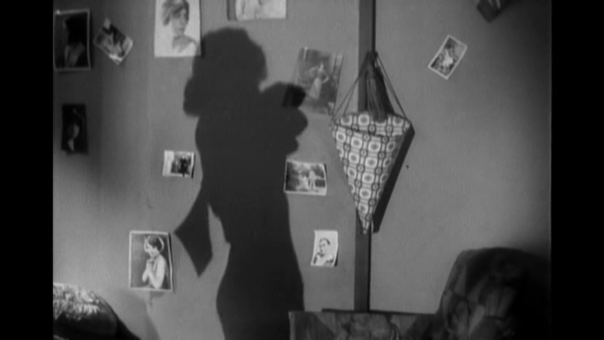
The second of eight films Joan Crawford and Clark Gable would make together and part of a cycle of films that would transform Gable into a star in the early 30s.

Laughing Sinners gives Crawford solo billing in what was then a controversial tale of a café entertainer (Crawford as Ivy ‘Bunny’ Stevens) who’s in love with a low-rent travelling salesman (Neil Hamilton as Howard ‘Howdy’ Palmer). He dumps her in the middle of a love song she’s prepared especially for him to run off and marry an heiress, news that drives ‘Bunny’ to want to jump off a bridge. But just as she’s about to, she’s rescued by Carl Loomis (Clark Gable), a guy who knows all about the low life and has recently come out of the slammer. He’s now found God and has become a Christian soldier for the Salvation Army. ‘Bunny’ joins him and the Salvation Army and is transformed into saintly ‘Ivy’. But ‘Howdy’ returns, she sleeps with him, finds herself condemned to be a ‘bunny’ once more, only to saved once again by Carl’s empathy and compassion. Just before the fade-out, we see Ivy and Carl, holding hands in uniform, marching through green pastures and into the horizon. One is drawn to giggling but there’s a rawness to the film that prevents it.
Laughing Sinners is pre-code and quite racy. I prefer the Crawford of this period — the good-time hootchy girl who sings and dances ‘red-hot blues’ — to the suffering masochist she later became. She brings real energy and verve to every scene she’s in, whether rushing madly with desire to meet her lover at the train, dancing the Charleston at the club (see above), or even later in the hotel room where she’s dancing at the table for all the travelling salesmen. When she turns noble she turns dull.
Luckily, it’s in those scenes Gable appears, and even pre-moustache, wearing an apron and scrambling eggs for Ivy, he’s a force to be reckoned with. I was particularly taken with the scene above, the way he walks when he threatens the salesman; the growl in his voice when he says ‘get out of here before I throw you out’. Neil Hamilton is handsome enough and he gives a good performance. But he’s no match for Gable. Particularly when Gable turns tender. He’s clearly destined for stardom here; and Crawford and Gable have terrific chemistry.
I was quite taken with the moment Ivy/Bunny tells him, ‘Oh you’ve been wonderful Carl. More wonderful than anyone’s ever been. I’m sorry on your account if I couldn’t make the grade. I tried honest but it’s no use….Don’t you see I was only fooling myself. I wanted to go back all the time. I nearly died pretending to be something I’m not. That’s why I broke out tonight. I stood it as long as I could and… ‘ These tales of repression, of fall and redemption, of the conflicts between inner desires and social constraints and the toll these struggles take on the psyche remain resonant.
The film is an adaptation of a play, Torch Song by Kenyon Nicholson and is no great shakes as cinema. But it is very much worth seeing for Crawford and Gable and also as a commentary on its times. One gets glimpses, sometimes sideways of ‘structures of feeling’ and also bits like the clip above, where some travelling salesmen begin to sing in that down-low way I always associate with Mae West and a whole period of American culture is instantly evoked.
José Arroyo